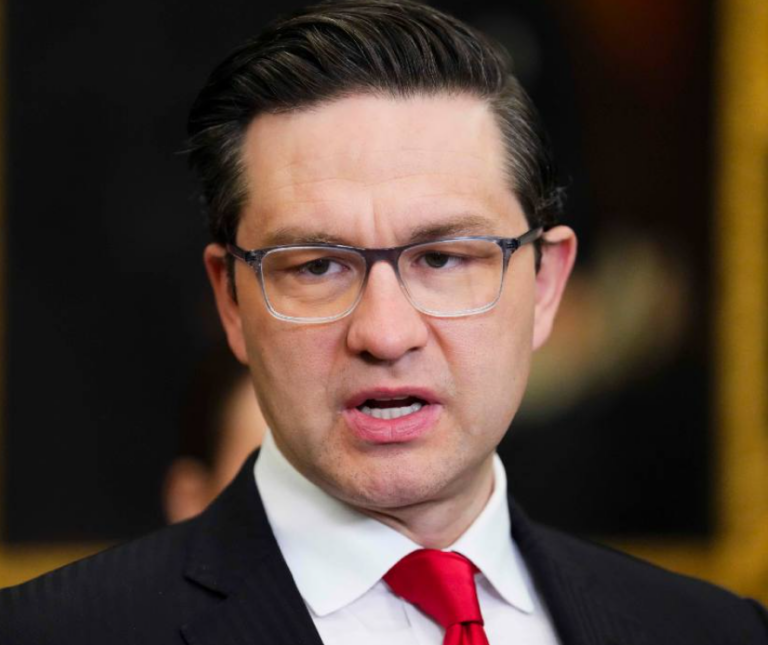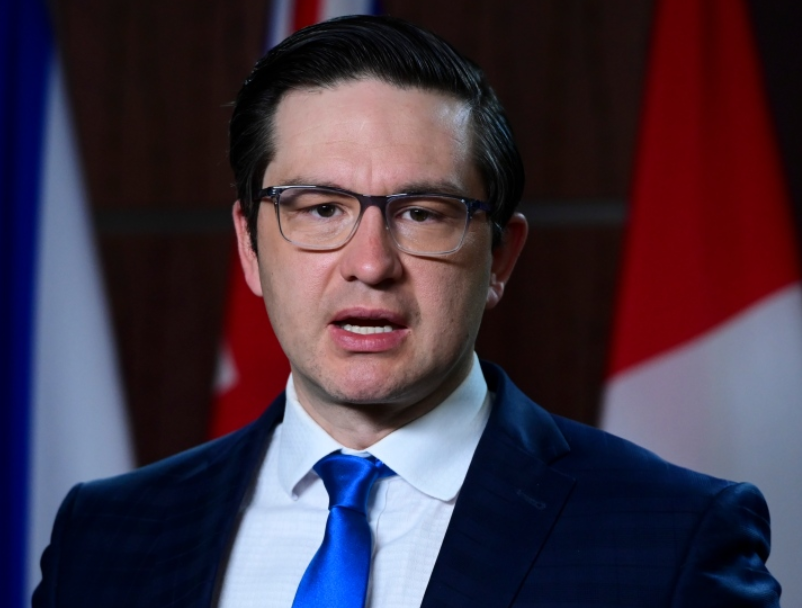Unveiling Pierre Poilievre: Birth, Career, & More
What makes a Canadian politician a force to be reckoned with in the political arena? In the case of Pierre Poilievre, it's a combination of his unwavering ambition, his carefully cultivated image, and his ability to connect with a specific segment of the Canadian electorate that has propelled him to the forefront of national politics.
Born on June 3, 1979, in Calgary, Alberta, Pierre Poilievre's life has been marked by a journey that has seen him rise through the ranks of Canadian political life. Adopted shortly after birth by Marlene and Donald Poilievre, both school teachers, his upbringing provided a foundation of stability and a value system that would later inform his political philosophy. His adoptive father, Donald, hails from a French Canadian background, adding another layer to his diverse heritage. The decision by his biological mother, who was of Irish-Canadian descent on her father's side, to place him for adoption shaped the early narrative of his life, a narrative that he would later use to connect with Canadians from all walks of life.
| Attribute | Details |
|---|---|
| Full Name | Pierre Marcel Poilievre |
| Date of Birth | June 3, 1979 |
| Place of Birth | Calgary, Alberta, Canada |
| Political Party | Conservative Party of Canada |
| Current Position | Leader of the Conservative Party of Canada (since September 10, 2022) and Leader of the Official Opposition |
| Member of Parliament (MP) | Since 2004 |
| Former Positions | Minister of State for Democratic Reform (2013-2015), Minister of Employment and Social Development |
| Education | Bachelor of Arts in International Relations from the University of Calgary |
| Marital Status | Married to Anaida Galindo |
| Children | Two (Valentina Alejandra and Cruz Alejandro) |
| Height | 6 feet 2 inches (1.88 meters) |
| Known for | Populist politics, acerbic and confrontational style, focus on economic issues |
| Reference | Parliament of Canada |
Poilievre's political career began in earnest with his election as a Member of Parliament (MP) in 2004. Since then, he has steadily climbed the ranks, holding various ministerial portfolios and establishing himself as a prominent voice within the Conservative Party. His tenure includes serving as Minister of State for Democratic Reform and Minister of Employment and Social Development. His ascent culminated in his election as the leader of the Conservative Party in September 2022, a position that made him the Leader of the Opposition.
Poilievre's approach to politics is often described as dynamic and assertive. He is known for his strong stances on economic issues, frequently criticizing government spending and advocating for fiscal conservatism. He has a knack for communicating complex economic concepts in a way that resonates with a broad audience, often using populist rhetoric to connect with voters. This approach has drawn comparisons to figures like Donald Trump, particularly in his use of an often confrontational and, at times, acerbic style. However, its important to note that these are merely comparisons, and Poilievres political identity remains uniquely Canadian.
Beyond the political sphere, Poilievre's personal life has also garnered attention. He is married to Anaida Galindo, a former political staffer, with whom he has two children. His tenacity in courting his future wife is a matter of public record, showcasing a different side of his personality. The couple's presence in the public eye has also brought attention to Anaida's role and her perspective on the political landscape.
Poilievre's political career is not without its critics. His conservative stance on various social and economic issues, coupled with his confrontational style, has made him a polarizing figure. His critics often point to his economic policies, questioning their potential impact on social programs and vulnerable populations. The comparisons to Donald Trump are also a double-edged sword, as they can alienate moderate voters who are wary of the former U.S. president's brand of politics. The focus on these comparisons, however, sometimes overshadows the specifics of Poilievre's policy proposals and his vision for Canada's future.
The influence of Poilievre's policies on the Canadian political discourse is undeniable. As leader of the Conservative Party, he has significantly shaped the direction of the party and, by extension, the national conversation on key issues. His focus on economic issues, government accountability, and individual liberties has resonated with a segment of the Canadian electorate, making him a formidable force in Canadian politics. His policies and rhetoric continue to shape the landscape, and his position ensures that his views are heard in the country's political debates.
Poilievres success in connecting with a specific segment of the Canadian population can be attributed to several factors. His focus on economic issues like inflation and the cost of living, his willingness to challenge the status quo, and his ability to communicate his message effectively through social media and other platforms have all contributed to his popularity. His personal story of adoption, and his ability to relate to everyday Canadians and their concerns, has also been a key aspect of his appeal.
His adoption story, the journey of a young boy placed for adoption and raised by teachers, is a defining part of his narrative. This background has allowed him to connect with many Canadians, highlighting resilience and the value of opportunity. The story adds a layer of personal depth to his public persona and allows him to connect to a broader audience that might otherwise be skeptical of a career politician. The fact that his adoptive parents were school teachers, has given him a grounded perspective.
Poilievre's path to leadership was marked by persistence. His marriage to Anaida Galindo reflects this, as does his relentless campaign for the leadership of the Conservative Party. His political style is confrontational at times, and yet, he has a knack for connecting with ordinary Canadians. These traits have earned him a devoted following and a reputation as a skilled communicator.
The influence of his policies and influence on modern Canadian political discourse has been substantial. His focus on economic issues and his criticism of government policies has often driven the national conversation. His leadership of the Conservative Party has also led to changes in the partys direction and priorities, which in turn influence the broader political landscape. He has become a focal point, whether it be his stance on inflation or critiques of other parties proposed policies.
The path of Pierre Poilievre offers a compelling study in the evolution of modern Canadian politics. From his roots in Calgary to his current position as a leader, his story reveals a politician who has effectively utilized personal narratives, adapted to changing political environments, and adopted the leadership of a prominent political party. His approach, which blends economic conservatism with populist appeal, continues to shape the Canadian political landscape. His presence in the political arena, both in debates and on social media, ensures that his perspectives are widely discussed, making him a prominent and influential figure in contemporary Canadian life.
The Conservative Partys focus on economic issues and fiscal responsibility often resonates with a broad range of voters, especially those concerned about the cost of living and government spending. The party's stances on issues such as taxation and government debt are consistently central to the discourse, influencing the perspectives of many Canadians.
Poilievre's ability to articulate complex economic concepts in ways that the public can understand has also played a crucial role in his political success. By simplifying economic issues and framing them in terms that appeal to everyday concerns, he is able to connect with voters who might not otherwise follow politics closely. He emphasizes a need for financial accountability, promising to cut taxes and reduce government spending.
Critics often point to the limitations of this approach, arguing that his focus on cutting spending might negatively impact social programs or public services. They also raise questions about the long-term economic implications of his proposals. The populist appeal, while successful in attracting a base of support, can also alienate some voters who may not agree with some of his more controversial statements. The perception of his policies is an ongoing debate and is one of the biggest challenges he faces.
His tenure as the leader of the Conservative Party and his position as the official opposition provides him a platform to challenge the ruling government. Poilievre is a skilled debater and a forceful communicator, and he effectively uses his position to scrutinize the governments policies and hold them accountable. His leadership style and policy stances have created a considerable political contrast, influencing policy debates and public perceptions.
Poilievre's strategy also incorporates extensive use of social media. He directly engages with his supporters through platforms like Twitter and Facebook, which enables him to bypass traditional media channels and communicate directly with voters. This allows him to set the narrative and control the messaging, which can be a very effective political strategy in the digital age.
The name 'Poilievre' itself, which translates to 'stone' or 'rock,' is appropriate for a politician whose career is marked by the tenacity needed to climb the political ladder. His ability to weather criticism and maintain momentum is a notable characteristic. The name also hints at the stability and strength that many people seek in a leader.
His political career has involved a series of calculated moves. After completing his secondary education in English, he pursued higher education at the University of Calgary, earning a degree in International Relations. His academic background has undoubtedly contributed to his ability to understand and address complex issues. His focus on policy and his determination in the political process are important assets.
In conclusion, Pierre Poilievres journey is a compelling reflection of the forces at play in modern Canadian politics. His background, his choices, and his style have enabled him to rise through the ranks of Canadian political life, establishing himself as a significant influence. His story is likely to evolve, especially given the dynamic nature of Canadian political life.


